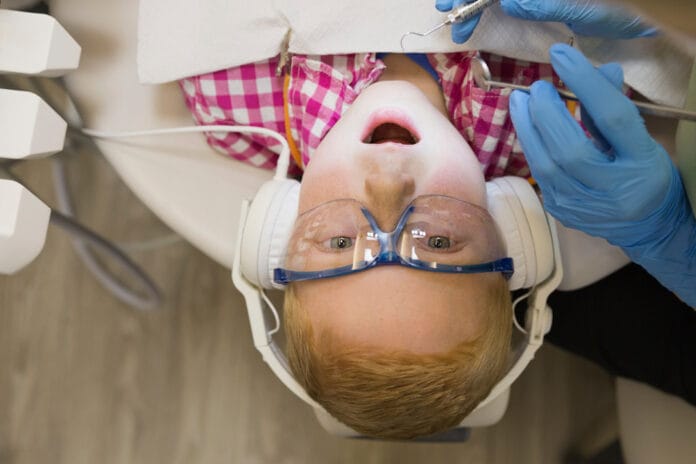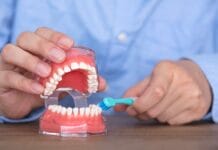Dental hygienists witness firsthand the significant role that stress plays in the experiences of dental patients. Dealing with apprehension and anxiety among patients is a daily challenge. These emotions can hinder the overall treatment process and compromise patient well-being. Music has emerged as a therapeutic tool with the potential to alleviate stress and create a more comfortable dental environment.1
I have worked in offices where background music was not allowed as well as in practices where music is an integral part of the patient experience. In my experience, the difference in patient stress levels is significant. With no music in the background, the only thing to listen to is the sound of our sometimes intimidating equipment and, unfortunately, patients in the neighboring operatories discussing their private information. Patients sometimes even ask about what is going on in the next room.
Psychological Benefits of Music
Music possesses a unique ability to influence human emotions and induce relaxation. Listening to pleasant melodies can distract patients from their dental anxieties, allowing them to shift their focus to soothing sounds.2
Patients should be encouraged to choose music that lifts their mood and sustains their attention.2 Music can evoke positive emotions, reducing stress, anxiety, and fear commonly associated with dental procedures. It creates an environment conducive to a calm and composed state of mind for both the patient and the provider. It has been postulated that music reduces anxiety through its impact on autonomic nervous responses and triggers the body to release endorphins, creating a sense of well-being.2
Distraction and Attention Diversion
Music serves as a powerful distraction, diverting dental patients’ attention away from potentially distressing dental procedures. By providing an engaging and enjoyable auditory experience, music helps patients concentrate on the music rather than on the sounds and sensations associated with dental treatment.2
This diversionary effect not only decreases stress levels but also aids in pain perception modulation, making the overall dental experience more comfortable. Dopamine released while enjoying music plays an important role in central analgesia due to its interactions with endogenous opioids.2
Relaxation and Mood Enhancement
The rhythmic patterns, harmonies, and melodies of music have the ability to induce relaxation and enhance mood. Music can promote a sense of tranquility, thereby mitigating stress responses in patients.2 It can drown out nearby conversations and the often triggering sounds of handpieces and suction.
By facilitating a positive emotional state, music contributes to an overall sense of well-being and fosters a more pleasant dental experience. It has been shown that listening to music can reduce patient blood pressure, respiration rate, and cortisol levels.1
Improved Patient-provider Communication
Stress and anxiety can impede effective communication between patients and dental professionals. Music serves as a universal language that transcends barriers and facilitates connection.
Patients who listen to music during dental treatments often feel more at ease and are more likely to communicate openly, enabling dental staff to understand their concerns better and provide appropriate care. Enhanced communication fosters trust and improves the overall patient experience.2
Promoting Relaxation and Dental Treatment Compliance
Stress and anxiety can sometimes lead to patients avoiding or delaying necessary dental treatment, negatively impacting their oral health. By utilizing music as a stress-reducing tool, dental professionals can help improve patient comfort and willingness to spend time in our operatory.
Creating a relaxing atmosphere with carefully selected music can encourage patients to seek regular dental care, leading to better oral health outcomes.1
Implementation of Music in Dental Operatory
Patients have a variety of musical tastes, so selecting music could be a trial. Multiple streaming applications are available, with nearly unlimited music catalogs. When seating your patient, ask what genre of music they like or what they are in the mood for. Select a station that matches their needs. It could either be streamed through an inexpensive wireless speaker or even your computer speakers.
Ask the patient how the volume feels and let them know we can adjust it if they need to.2
Another, probably better, option is to suggest to patients that they bring their own earbuds to listen to. Encourage them to listen to something they feel is uplifting and engaging. Sometimes a patient’s musical taste or preferred volume does not match the provider’s comfort level. The last thing we want is a more stressful work environment!
Having their own device will give the patient a heightened sense of control which in itself can reduce anxiety.2 Allow patients to immerse themselves in the music before treatment begins, perhaps even scheduling extra time for this purpose for the most anxious patients.
Spending time to create a custom environment for the patient will reap great rewards in the overall flow of the appointment and patient satisfaction. A more relaxed dental appointment will not only help the patient but also make our day go better!
Before you leave, check out the Today’s RDH self-study CE courses. All courses are peer-reviewed and non-sponsored to focus solely on high-quality education. Click here now.
Listen to the Today’s RDH Dental Hygiene Podcast Below:
References
- Packyanathan, J., Lakshmanan, R., Jayashri, P. Effect of Music Therapy on Anxiety Levels on Patient Undergoing Dental Extractions. J Family Med Prim Care. 2019; 8(12): 3854-3860. https://www.ncbi.nlm.nih.gov/pmc/articles/PMC6924244/
- Bradt, J., Teague, A., Music Interventions for Dental Anxiety. Oral Diseases. 2018; 24: 300-306. https://onlinelibrary.wiley.com/doi/pdf/10.1111/odi.12615












